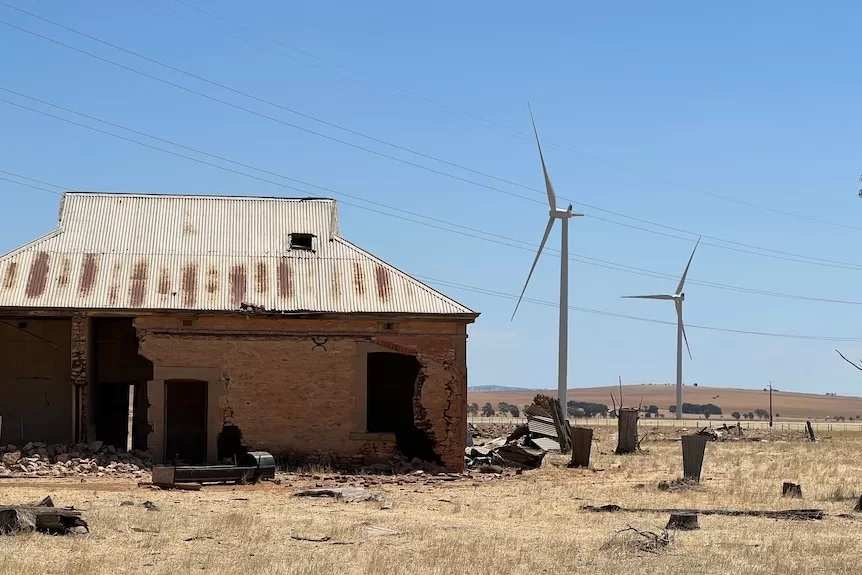- In short: The CSIRO has conducted what is says is the biggest survey on Australians’ attitudes towards the energy transition.
- The survey found most people are broadly supportive of green energy but are unwilling to pay more or risk blackouts for the shift.
- What’s next: The federal government is aiming for Australia to generate 82 per cent of its electricity from renewable sources by 2030.
A majority of Australians want the transition towards renewable energy to happen at a “moderate” pace and most are unwilling to accept higher bills to pay for it, according to a major survey by the country’s top scientific organisation.
But most Australians remain supportive of the broader shift away from fossil fuels and four out of five would “at least” tolerate living within 10 kilometres of renewable energy infrastructure.
In what it said was the biggest poll of Australians’ attitudes to the transition, the CSIRO found almost half of those surveyed felt the shift should be moderately paced, while 40 per cent wanted it to be faster and more extensive.
Just 13 per cent of respondents preferred a low-change scenario.
The poll of 6,700 people from across the country between August and September last year found that affordability was the top priority for most Australians in the energy transition.
About 82 per cent of respondents ranked affordability in their top three priorities, according to the CSIRO, and it was the top priority for 41 per cent of respondents.
By comparison, “other priorities in people’s top three” included Australia increasing its energy self-reliance, at 71 per cent, and the reduction of carbon emissions, at 56 per cent.
Support, but not at any cost
According to the agency, most people are unwilling to pay more or risk blackouts to accelerate the move away from fossil fuels, which are still used to meet almost two-thirds of the power in Australia’s main electricity grid.
The CSIRO said 64 per cent of respondents disagreed or strongly disagreed with the idea of paying more for electricity, a figure that was only slightly lower, at 62 per cent, for gas.
At the same time, almost 60 per cent of people were not prepared to risk more blackouts as part of the transition.
Andrea Walton, a senior social scientist on the project, said the aim of the survey was to ensure people’s views of Australia’s energy overhaul were properly representative.
Dr Walton said they should help policymakers from across all levels of government make decisions about how the transition should take place.
“The value of such a large survey is we can report with a higher degree of certainty what a range of people think,” Dr Walton said.
“The survey showed that most Australians supported the energy transition, but opinions varied about the rate and extent of change.
“Many Australians held generally moderate attitudes towards living near renewable energy infrastructure, suggesting a broad willingness to support, or at least tolerate, the development of solar farms, onshore and offshore wind farms, and associated transmission line infrastructure.”
As part of its efforts, the CSIRO, together with the Federal Department of Climate Change, Energy, the Environment and Water, looked at people’s attitudes towards specific kinds of renewable energy infrastructure.
The results showed while people were “in the middle” — having neither “overly positive nor negative feelings” — most were willing to support or at least tolerate living near green-energy projects.
Support was highest for solar farms, with 88 per cent of respondents saying they would at least tolerate having a development near their house.
It was a similar story for onshore and offshore wind farms, with at least moderate support rated at more than 80 per cent.
Transmitting mixed views
By contrast, the least support was for high-voltage power lines.
Almost a quarter of respondents said they would reject a transmission line within 10km of their house.
Generally, opposition to renewable energy projects was highest in rural areas, where about a third of those surveyed said they would reject green projects.
“This makes sense because people living out of town are more likely to be living near current or proposed developments,” Dr Walton said.
“Transmission lines were seen less favourably compared to other renewable energy infrastructure.
“The survey revealed an important reason for this was that people didn’t always recognise the role of additional transmission lines in the renewable energy transition.
“What this survey indicates is that when people believe that a piece of infrastructure has an important role in the energy transition, they’re much more likely to accept it.”
Federal Climate Change and Energy Minister Chris Bowen said the report showed most people were optimistic about the energy transition while opposition or resistance was low.
Mr Bowen also acknowledged people’s focus on affordability and said the government’s plans to fast-track the development of “firmed” renewable energy would deliver the cheapest forms of new generation.
“CSIRO’s research finds that nearly 90 per cent of Australians want a high or moderate transition to renewables,” he said.
“Labor’s energy plan is backed by Australian experts who understand what our energy system needs, and we’re delivering cheap, clean, renewable energy in the grid, firmed by storage and gas right now.
“The CSIRO’s research has also consistently shown renewables are the lowest-cost form of energy while nuclear is the most expensive.”
